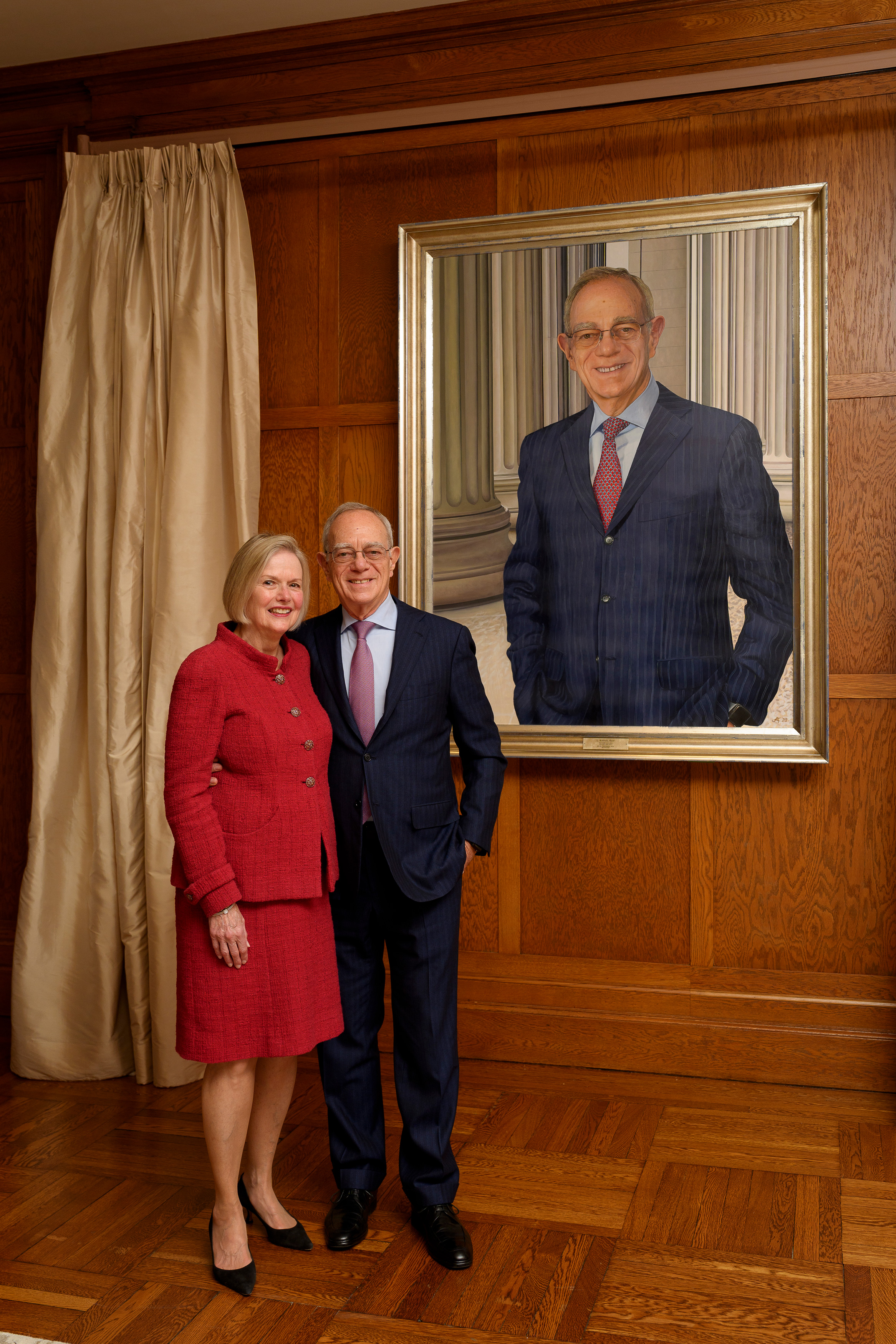MIT Unveils Presidential Portrait of L. Rafael Reif at Gray House Reception
A new portrait marks the legacy of L. Rafael Reif, MIT’s president from 2012 to 2022. Painted by Jon Friedman, the portrait was unveiled at a recent gathering at Gray House, where portraits of many of Reif’s predecessors also adorn the walls.
The unveiling served as something of a reunion for many MIT faculty and staff members who had worked closely with Reif at various points in his four decades at MIT, especially his decade as president. It also featured several generations of the Reif family and special friends such as cellist Yo-Yo Ma. Susan Whitehead, a life member of the MIT Corporation and life board member of the Whitehead Institute, and Ray Stata ’57, SM ’58, co-founder of Analog Devices, gave remarks honoring Reif and his impact at the Institute.
MIT President Sally Kornbluth opened the event by welcoming the audience to the president’s residence on campus.
“As we all know, Gray House belongs to the MIT community, which means that each family who lives here takes responsibility for stewarding the place for the future. Which, in a grander sense, is a pretty good way of describing what it means to be president of MIT,” she said.
Applauding the “many grand things he set in motion,” Kornbluth described several of Reif’s impactful achievements as MIT’s 17th president, such as establishing the MIT Schwarzman College of Computing, leading the revitalization of Kendall Square, and envisioning and launching The Engine, MIT’s venture firm for “tough tech.”
“Each of those achievements helped prime MIT for the future, and each one has had powerful positive effects well beyond our community too,” Kornbluth said, noting that the term “tough tech” didn’t even exist before the establishment of The Engine.
“MIT has been an exceptional place from the very start, and it has had quite a few visionary presidents. But there is no question that MIT was more exceptional when Rafael finished than when he began. And we owe him a great debt of gratitude,” Kornbluth said.
More information about the Reif presidency can be found in this article written when Reif announced his decision to step down.
After the portrait was unveiled, Ma performed a short piece by Johann Sebastian Bach on the cello. Afterward, Stata offered a comprehensive personal and historical perspective on Reif’s wide-ranging contributions to MIT and the nation, including his key role in establishing MIT’s footing in the semiconductor landscape, and in demonstrating and advocating for the critical role of academic research in advancing the development of the U.S. semiconductor sector. Whitehead followed, highlighting a range of Reif’s accomplishments during his tenure as MIT president, including establishing the Institute for Medical Engineering and Science and MIT.nano, leading the Campaign for a Better World, overseeing the redevelopment of the Volpe Center in Kendall Square, and more.
“All of the above was made possible because you are a remarkable synthesizer and builder,” she said. “We watched as you grappled with questions, listened carefully, inside and outside of MIT, and then you moved. You were bold once you had synthesized. None of the above initiatives would have happened without your decisive big thinking.”
Whitehead also praised Reif’s kindness and empathy, noting the many decisions he oversaw to promote student wellbeing at MIT and acknowledging his leadership during difficult times, such as the death of MIT Police Officer Sean Collier. She closed by reminding the crowd of the Institute-wide farewell dance party he hosted as he stepped down.
When Reif took to the podium, he thanked the speakers as well as other members of the audience, including Corporation Life Member Fariboz Maseeh ScD ’90; Reif was the inaugural holder of the Fariborz Maseeh Professorship of Emerging Technology before becoming MIT’s president. He also thanked his wife, Christine — whose own portrait, also painted by Friedman, now hangs in the Emma Rogers Room (Room 10-340) — for her support.

Reif recalled some of his favorite memories of living at Gray House, including hosting his grandchildren for sleepovers at what they called “the Castle” and partaking in a snowball fight with students on Killian Court.
“Each and every one of you influenced my thinking, gave me intellectual breadth, suffered my sense of humor, and shaped the person I became,” Reif said. “So, whatever qualities you believe you see captured in Mr. Friedman’s portrait, please realize that all of you are represented there too, in your brilliance and your goodness. It has been a tremendous privilege to be part of the MIT family for all these years.”

